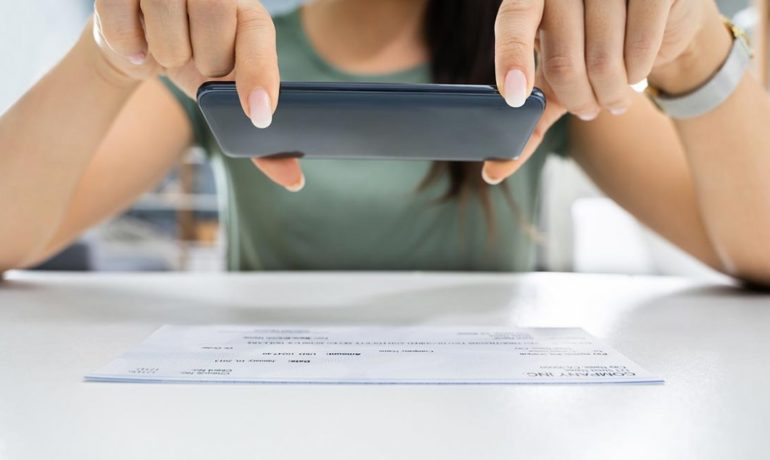During these unusual times, many of us are working from home. It reminds me of a lean bookkeeping win that’s worth sharing.
Last summer, I took on a new client – a long-standing organization that’s been around for decades.
I have so much respect for organizations that are older than I am! It means they’ve weathered the financial ups and downs better than most.
On the downside, they often have outdated systems they’ve never bothered to change. They justify it with the classic phrase, “We’ve just always done it this way.” Hearing that phrase makes me excited, because I know there is going to be oodles of opportunity to optimize their processes and help them out!
The problem
The first problem I noticed was there was always money “laying around.” What I mean is there was often a handful of undeposited cheques, worth thousands of dollars, begging to get deposited into a bank account.
In my client’s office, the full-time office manager would receive cheques in the mail or accept them in person in the office. She would put the cheques into the bookkeeper’s paper inbox.
So what?
The cheques would sit there, with all the other lonely cheques, waiting to reach their full potential! Two days would pass. Three days would pass. Sometimes the cheques would wilt in the inbox for up to a week.
One cliché that is always true in business is, “Cash is king.” What good is undeposited money? Payments should be getting into the bank account as fast as possible, especially if a business isn’t cash rich.
The bookkeeper at the time was only in the office once or twice per week. When she was there, she would process the cheque in QuickBooks, and then print a deposit slip. Since she worked in the evenings, she did not take the deposit to the bank. She would give it back to the office manager.
Unfortunately, the office manager was usually the only person in the office during business hours. She found it difficult to find the time to be away from the office to go to the bank. So, the lonely cheques would sit in the deposit envelope for another couple days until the office manager had time to make the trip to the bank.
Identified waste: up to 9 days of waiting. Everyone was working efficiently, but the process wasn’t flowing.
It wasn’t anyone’s fault. It was just a bad process!
The improvement
My plan was to get my client’s money into their bank account as quickly as possible. I started to ask questions, and quickly came upon a simple solution.
The office manager had access to the organization’s bank account. I asked her to download the bank’s mobile banking app so she could deposit the cheques through the app.
If you’ve never deposited a cheque through a mobile banking app, you’ll have to trust me that it’s super easy to do. If you can use a phone camera, you can deposit a cheque through an app.
These days, the office manager deposit cheques as soon as she gets them, and then she puts them into the bookkeeper’s inbox to process.
The important part – getting the money into the bank – moved to the front of the process instead of being the last step.
Eliminated waste
The payments go into the client’s bank account as quickly as possible, yet we eliminated a huge amount of waste in the process:
- Nine days of waiting cut down to less than three hours.
- No more waiting for the bookkeeper to process the paperwork.
- No more waiting until the bank is open to do business.
- No more driving to the bank and fighting traffic and bad weather.
- No more searching for a parking spot.
- No more waiting in lineups at the bank.
There was one additional element in the process, and that was to follow the bank’s retention policy. We had to keep the physical cheque for at least five business days before destroying it. Now, we shred the previous month’s cheques around the 10th of each month when the bank reconciliations are completed.
Continuous improvement
Through this improvement, the office manager noticed there was an influx of cheques on certain days of the month. That was because the organization accepted regular and recurring payments.
We decided to explore automatic withdrawals, so it was even easier to receive payments. I’ll explore the next improvement in a future blog post.

Nicole Auser has more than a decade of progressive experience in bookkeeping for small businesses and non-profit organizations. As an entrepreneur and owner of two small businesses, she understands the need to streamline bookkeeping systems to save time and money.

Avel Espiritu is an expert in Lean principles and practices. With 14 years of progressive experience leading and managing projects, he applies Lean principles to execute project tasks and bring them to a close – on schedule and within budget.


